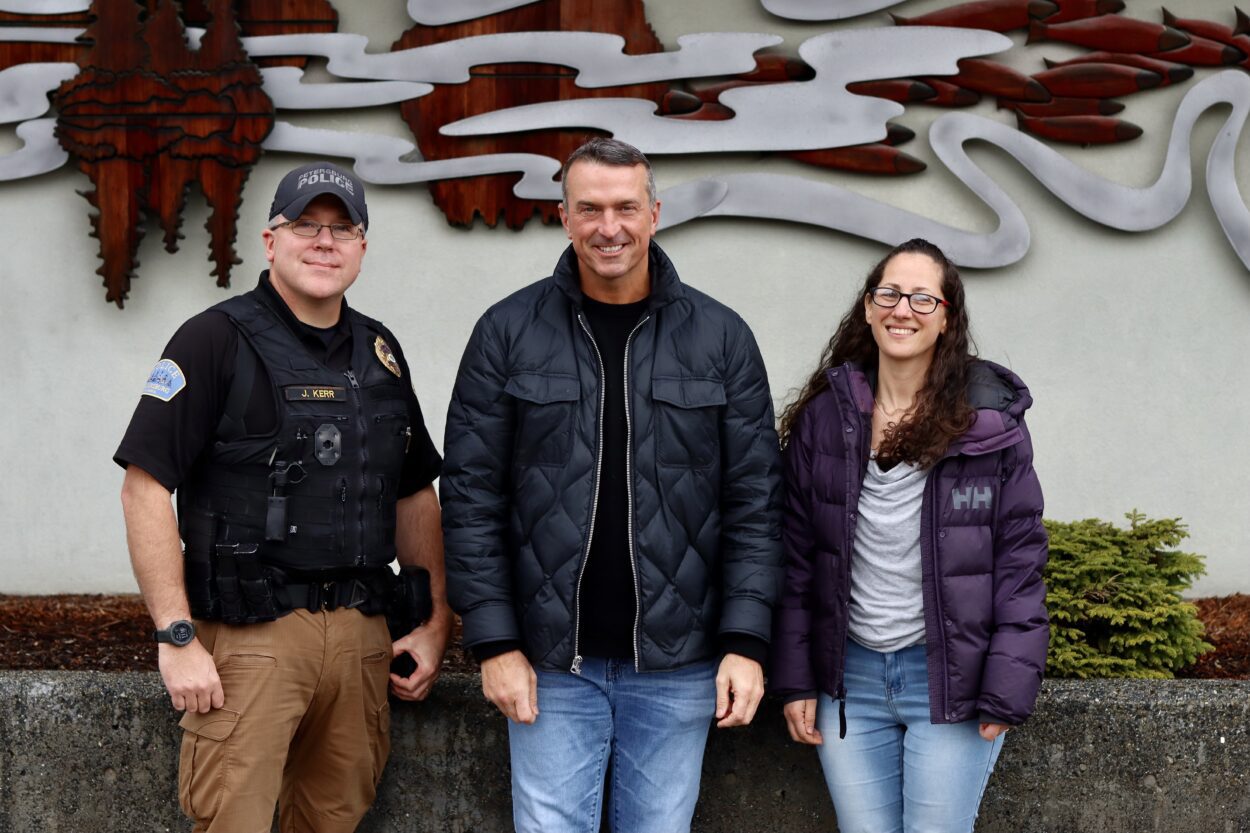
Chris Herren paced in front of a full auditorium.
“See, I remember like it was yesterday, walking into this talk,” he tells Petersburg’s middle and high school students. “I remember 8th grade, freshman year, the ‘Drug Talk.’”
Herren played basketball for the Denver Nuggets and the Boston Celtics in the late nineties and early 2000s. But he was in Petersburg last week to talk about substance use, not basketball.
“What I remember most about this talk,” he said, “was sitting in the seats with my buddies, kind of tapping each other, laughing, because we were already drinking and smoking – like, ‘This is a joke.’”
He says it wasn’t a joke, though. An addiction to cocaine, OxyContin, and then heroin ended his NBA career.
He’s been sober for more than 16 years now, and he travels the country telling his story. He asks kids to think about why they’re using drugs, or why they’re tempted to try them. He focuses on what he calls “the first day, not the worst day.” He said it’s often easier for kids to imagine the first step toward substance use than it is for them to relate to the usual scary stories about addiction.
He told the crowd, “I never heard one of my best friends say on a Friday night at a keg party….’I can’t wait to ruin my family, man. I can’t wait to get older and crush my family. I can’t wait to get older, man, and die from drugs.’ That conversation doesn’t come up at keg parties out in the woods.”
The visit was a collaboration between the Petersburg School District, the local tribe, and the Petersburg Police Department. It was Rachelle Larson’s idea to bring Herren to town. She manages assistance programs at the Petersburg Indian Association. When child services gets involved with a tribal family, it’s her job to go along on visits. She said often alcohol or other substances are at the root of abuse and neglect.
“My experience in this field has really given me insight into how, even in our small community, we’re greatly impacted by this,” she said. “And this spills over, not only within the family, but our community at large and our schools as well.”
According to the state, nearly three-quarters of all child service cases in Alaska are impacted by substance abuse.
And while overdose deaths are decreasing in most of the country, in Alaska overdose death rates are still rising.
Larson said she hopes the talk leads to conversations within families and the community.
“I feel like oftentimes, especially when children have caregivers who are grappling with addiction, they feel isolated,” she said. “They feel like they’re the only ones struggling with this, and that brings with it a lot of shame.”
The Petersburg Indian Association split the cost to bring Herren to town with the Petersburg Police Department. Police Chief Jim Kerr said he was interested in the collaboration because substance use is a problem in Petersburg.
“We’ve seen addiction issues in this town and living on a small island in southeast Alaska really amplifies it,” he said. “One of the things about living on an island is, you know everyone, and so maybe someone won’t ask for help because they’re afraid of the repercussions or the word getting out.”
But to Herren, talking openly about addiction and substance use is the point. Sitting backstage before the assembly, he said parents don’t delve deep enough. They often tell their kids not to drink or party. He said that was the case with his parents.
“They never said, ‘Christopher, why do you think you have to do it?’ And I think that’s such an important question. I think that ‘Why?’ is what’s in the soul.”
He said there can be all sorts of reasons kids turn to substances. He said understanding that question is an important part of avoiding addiction.
“My “Why?” early on was self esteem, self worth, family trauma, divorce, pressure, escape,” he said.
He said he hopes that his story can help kids think about why they might use substances before it derails their lives, like it did his.
“If I can get some kid to leave the auditorium and have a conversation with a teacher or a coach or a principal, that’s why I’m here,” he said.
Herren was only in town for a few hours. That’s by design. He said he doesn’t want kids to talk with him after the assembly – he said it’s better for them to connect with people in Petersburg who can support them long term. He just hopes he inspires some of the kids to make those connections.











